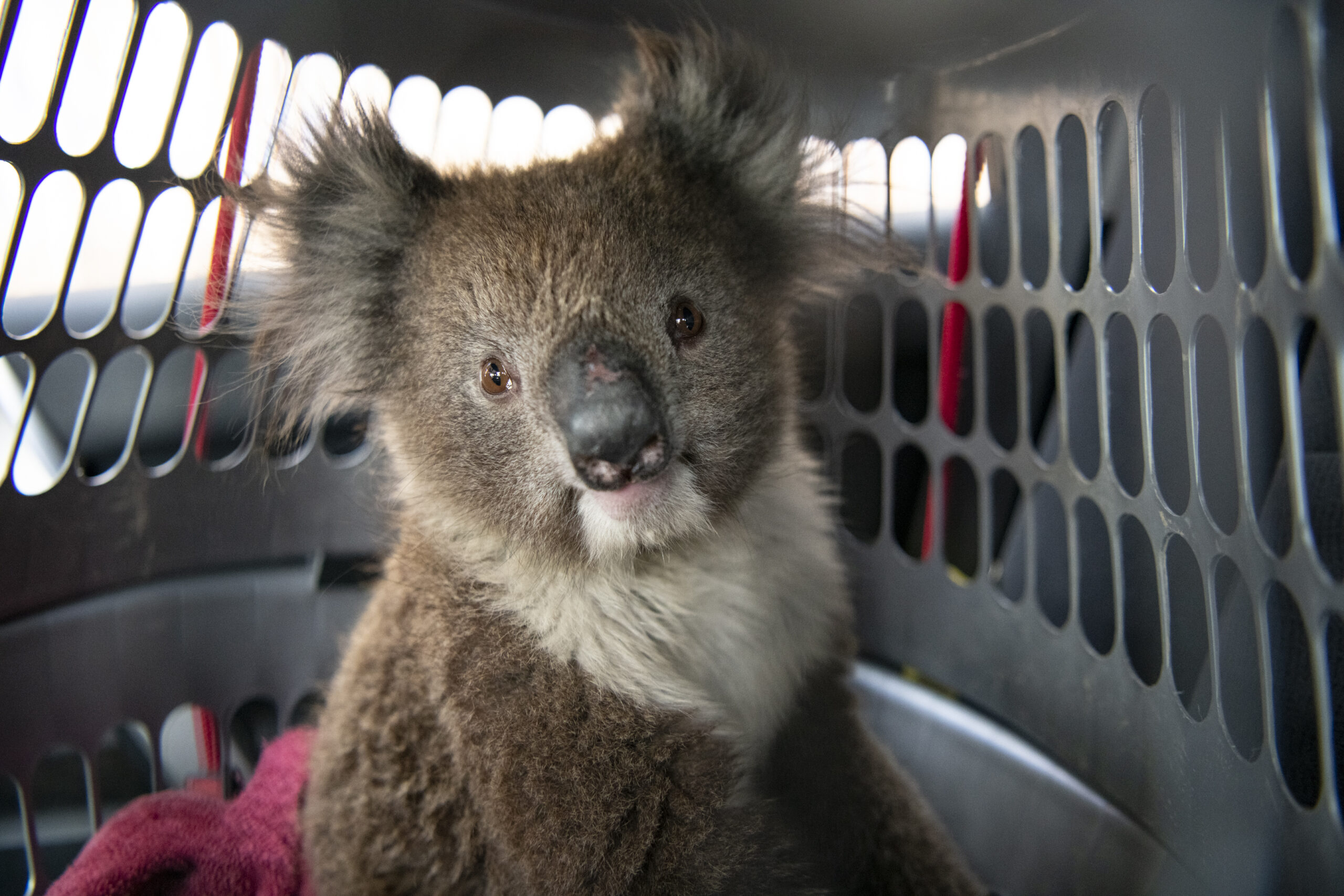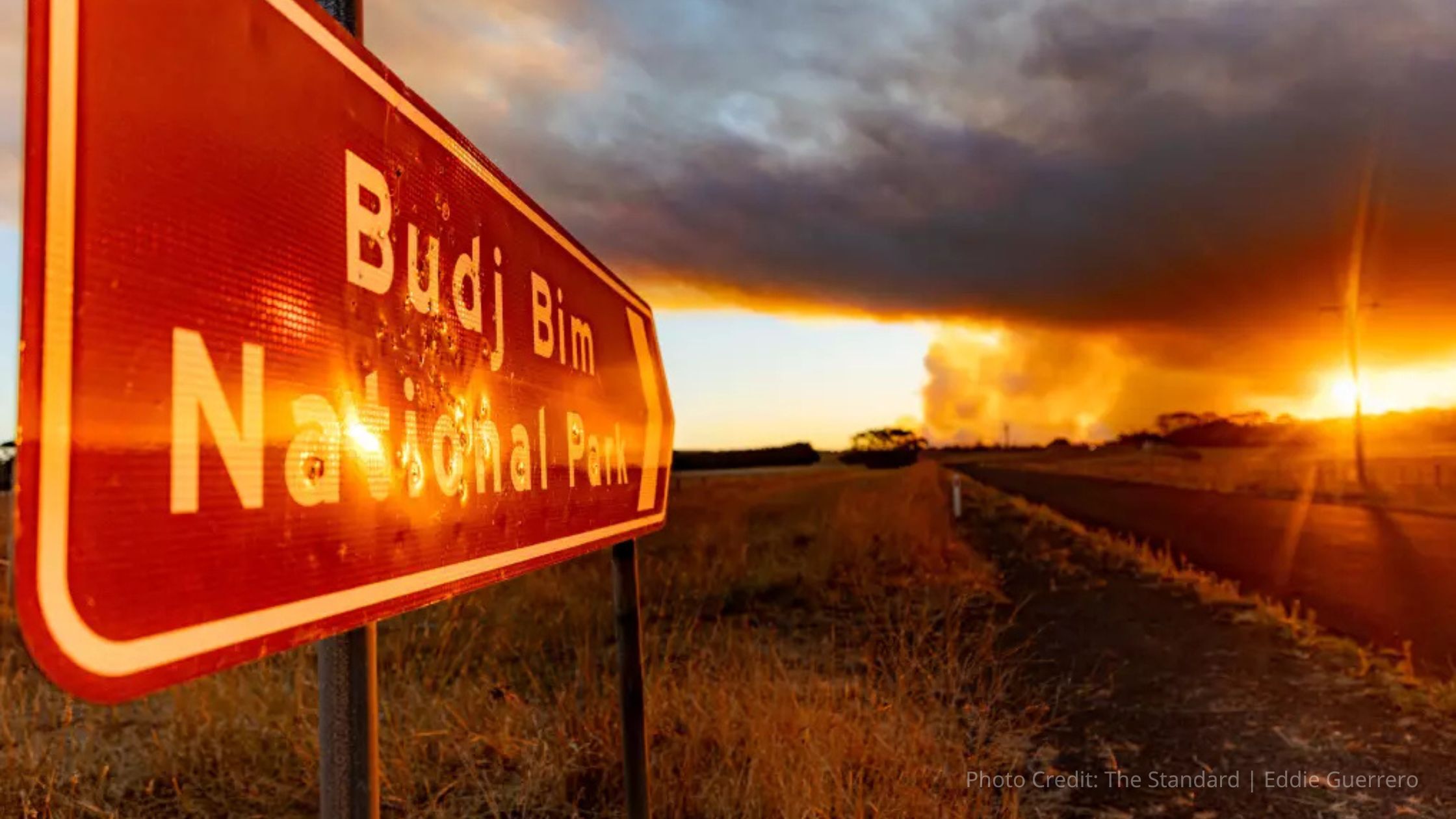Parliamentary inquiry into the management of blue gum plantations and koalas. Humane World for Animals is relieved to report that the koala shooting in Victoria’s Budj Bim National Park has stopped, with helicopters grounded last Friday, 25 April. Following fires in the area known to be home to a large...
The southern African nation of Botswana may be on the verge of bucking the global trend against trophy hunting. Last week, a subcommittee appointed by the president made the recommendation to end a ban on trophy hunting which has been in effect in the country for five years now, and to create new laws to expand the industry.
Botswana’s trophy hunting ban has saved nearly 2,400 elephants and 140 leopards, species whose numbers in the wild are dropping dangerously. And of course, trophy hunting has never been the only threat to their survival. In fact, poaching syndicates in Africa are reported to be moving south to countries like Botswana after decimating elephant populations in central, west and east Africa. Recent aerial survey reports by the NGO Elephants Without Borders show that poaching of Botswana’s elephant population is at its highest since the 1970s; between 2014 and 2018, the number of “fresh/recent” carcasses increased by a startling 593 percent.
Botswana’s decision makes no economic sense because nearly four years after an American trophy hunter killed Cecil the lion in Zimbabwe, sparking global condemnation of the industry, there are signs that interest in trophy hunting is rapidly waning throughout the world.
Nowhere is this waning interest clearer than at the annual gathering of the world’s largest trophy hunting industry group, Safari Club International, where vendors peddle trophy hunts around the world. The Reno Gazette Journal reports that attendance at the SCI’s annual convention this year dropped consistently for three years, with only 15,000 people in attendance, down from 18,000 last year and 20,000 in 2017.
Trophy hunters often hide behind the myth that their hobby aids conservation and helps local economies. Nothing could be further from the truth. Studies show that trophy hunting has caused population declines in lions, leopards and other wildlife species.
Dereck Joubert, an award winning cinematographer and conservationist, lives in Botswana; his latest film, Birth of a Pride, which aired recently on the National Geographic Channel, follows six lion cubs as they grow up in Botswana. Joubert purchased a former trophy hunting area in Botswana, and turned it into a wildlife reserve offering photographic safaris. He estimates that the net benefits of tourism to Botswana are at least 2,500 percent higher than the benefits from trophy hunting, because tourism operations like his employ many more local residents and pay much better than trophy hunting outfits do. Most tourists visiting Botswana are there to see the wildlife, and not to kill the animals.
The world increasingly sees trophy hunters as outliers, people who kill for fun and for bragging rights, while showing a complete disregard for the world’s precious wildlife. Some go to great lengths for a kill, or a trophy part, even acting in defiance of the law. At the SCI convention this year, our investigators found evidence of vendors peddling body parts of animals — such as elephants, which are at risk of extinction – in apparent violation of Nevada state law.
It is now up to Botswana’s president, Mokgweetsi Masisi, to make the final decision on whether his country will stay on the progressive path it adopted five years ago, or retrogress. The subcommittee convened by his government has also recommended allowing “regular but limited culling” of elephants, to establish an elephant meat canning industry for pet food. We urge Botswana to follow the lead of South Africa where the Humane Society of the United States and Humane Society International have been supporting the use of elephant immunocontraception vaccines for over two decades. So far, more than 800 female elephants living on 26 public and private reserves have been contracepted. Wherever conflict between humans and elephants exists, we can easily manage it through a suite of humane mitigation techniques that benefit animal populations and human communities.
Please sign our petition urging President Masisi to not turn his country into a bloody playground for a few trophy hunters and to avoid culling elephants. The world’s wildlife cannot withstand more attacks so a privileged few can decorate their living rooms with the heads and hides of these magnificent animals.
Tell the Botswana government to say NO to lifting the ban on trophy hunting
Kitty Block is President and CEO of the Humane Society of the United States and President of Humane Society International.
Header image: Pixabay


